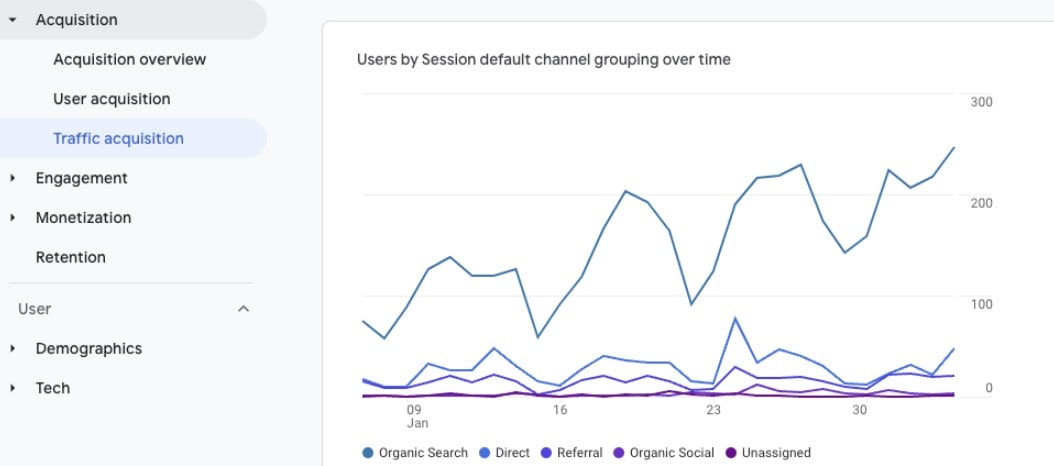As you navigate the evolving terrain of product management, have you ever wondered what sets apart a truly successful product manager? This article delves into this ever-changing role. Integrating innovation with practicality goes beyond simply controlling features and timeframes. Imagine steering a ship through uncharted waters; that’s the essence of product management. Gain knowledge that will propel you to the top of your field. In the enormous ocean of product management, may this essay serve as your compass. Remember that Plerdy and comparable technologies can improve your skills and overcome obstacles. Learn all you need to specialize in product management.

Basics of Becoming a Product Manager
Embarking on a journey to become a product manager is akin to mastering the art of orchestrating a symphony – each note matters. This role demands a blend of technical know-how, market acumen, and a knack for leadership.
- Market Insight: Understanding customer needs and market trends is crucial. A successful product manager not only identifies gaps but anticipates future demands.
- Strategic Planning: Crafting a product roadmap is key. This involves prioritizing features, setting timelines, and aligning them with business goals.
- Technical Proficiency: While not always a coder, familiarity with the technology underlying your product is vital.
- Effective Communication: Bridging the gap between technical teams and stakeholders requires clear, persuasive communication skills.
- Agile Methodology: Embracing agile principles helps in adapting to changes swiftly and efficiently.
In the IT sector, for example, a product manager may take the lead in creating a brand-new piece of software. In this role, they frequently adjust their approach in response to customer input or changes in the market, juggling the competing demands of technical constraints and user expectations.
At its core, being a product manager is all about finding that sweet spot where user requirements meet corporate goals, where technological feasibility meets inventive design, and where long-term vision meets immediate action actions. It’s about steering the product’s journey, from a nascent idea to a market-leading innovation.
From Scratch: Starting as a Product Manager Without Experience or Degree
Embarking on a product management career without a traditional background can feel like charting unknown territories, yet it’s an adventure filled with opportunities. This path requires creativity, proactiveness, and a willingness to learn.
- Self-Education: Leverage online resources, free courses, and webinars to build foundational knowledge about product management.
- Networking: Connect with product managers through LinkedIn or local meetups. These connections can provide valuable insights and mentorship opportunities.
- Practical Experience: Start with small projects, like managing a community event or a local fundraiser, to gain practical experience in organizing, planning, and executing projects.
- Portfolio Building: Document your journey and achievements in a well-crafted portfolio. This could incorporate personal project case studies to demonstrate your problem-solving and strategic planning talents.
For instance, someone with a background in customer service could use their understanding of customer needs as a stepping stone into product management. They can demonstrate how their experience matches product management competencies like user empathy and communication.
Starting from scratch in product management shows your unique viewpoint, talents, and drive to learn and improve. It’s about showing that unorthodox ways can lead to success.
Educational Journeys: Paths to Becoming a Product Manager

As diverse as the goods they manage, product managers have many educational options to suit their backgrounds and career goals.
- Traditional Education: An undergraduate degree in business, marketing, or a closely related discipline gives many product managers a solid grounding in the fundamentals of running a company.
- Tech Background: Those with a background in software development or engineering often transition into product management, bringing valuable technical expertise.
- MBA Programs: Pursuing an MBA with a focus on product management or marketing can provide advanced knowledge and strategic thinking skills.
- Online Courses and Certifications: A plethora of online resources offer specialized training in product management, from understanding user experience to agile methodologies.
For instance, a software engineer might leverage their technical skills and supplement them with a certification in product management to transition into the role. The dedication to comprehending the complex nature of product management is evident in each route, which combines commercial savvy with knowledge of technology and market dynamics. The path is varied, bringing people from all walks of life together on the shared goal of developing and overseeing high-quality products.
Career Shift: Transitioning to Product Management
Transitioning to product management is like steering a ship towards a new horizon – challenging yet full of promise. It’s about applying your talents and experiences to the varied product manager role.
- Skill Reassessment: Evaluate your current skills and understand how they translate to product management. For example, project managers already possess organizational and leadership skills crucial for product management.
- Learning and Development: Invest in learning specific to product management through courses or self-study to fill any knowledge gaps.
- Practical Application: Seek opportunities in your current role to take on product-related responsibilities, such as leading a small project or coordinating cross-functional teams.
Product management requires knowledge of market needs and consumer communication, which a marketing expert may already have. Molding your existing skills into product management shows how your unique experiences can help with product development and strategy.
First Steps: Opportunities in Entry-Level Product Management Roles

Embarking on a career in product management at the entry level is like planting seeds in fertile ground – it’s the beginning of a growth journey. Start building a solid foundation and understanding product lifecycle, customer engagement, and market strategy at this point.
- Assistant Product Manager Roles: Gain hands-on experience in supporting product development, market research, and strategy execution.
- Cross-Functional Collaboration: Work with marketing, development, and sales experts to comprehend product management’s many facets.
- Project Coordination: Manage smaller projects or parts of larger ones to learn project management and team coordination.
These professions provide real experience in product development, marketing, and improvement in software and consumer goods businesses. This phase is about learning, sharing ideas, and developing skills for a successful product management career.
Niche Expertise: Specialized Roles in Product Management
With pinpoint accuracy and insightful product management, specialized expertise propels products through specialized marketplaces. To work as a specialist in this field, you need to know your stuff and have a keen eye for detail.
- Healthcare Product Management: Involves navigating complex regulations and patient needs, focusing on medical software or devices.
- Financial Technology (FinTech) Product Management: Combining financial and computer skills is essential for creating innovative banking and investment solutions.
- E-commerce Product Management: Requires a keen sense for online consumer behavior and digital marketing trends to drive online sales.
Managers of products must be well-versed in the fundamentals of each field they work in and abreast of technological developments and industry trends. For example, improving healthcare app user experience, enhancing financial software with cutting-edge features, or optimizing online shopping platforms are all examples of niche product management problems that require a combination of industry-specific knowledge and core product management abilities to solve.
Climbing the Ladder: Senior Roles and Career Advancement in Product Management
Ascending the career ladder in product management is akin to navigating a complex, evolving puzzle – each move must be strategic and well-informed. Achieving senior roles in this dynamic field requires more than just experience; it demands continuous skill enhancement and a deep understanding of the market and product lifecycle.
- Strategic Leadership: Senior roles often involve leading cross-functional teams, requiring strong leadership and decision-making skills.
- Product Vision and Innovation: Senior product managers are expected to not only understand but also anticipate market trends and steer product innovation accordingly.
- Stakeholder Management: Building and maintaining relationships with key stakeholders, including customers and executive teams, is crucial at this level.
In tech, a senior product manager may lead the development of a new software, requiring technical and business skills. They may help a new consumer products product line succeed by balancing market demands and production feasibility. Advancing to senior product management jobs requires creating a product’s future vision, leading teams to it, and adjusting to the changing business landscape.
Tech-Savvy Management: The Role of Product Managers in Tech Companies

Product managers lead the charge in today’s lightning-fast digital industry by fusing strategic vision with deep technical knowledge. They connect the dots between development and market demands, which is a crucial function for software firms.
- Innovation and Development: In tech businesses, product managers are the ones who push innovation forward by making sure new technologies are developed to fulfill market needs.
- User Experience Focus: They prioritize user experience, ensuring products are not only technologically advanced but also user-friendly and relevant.
- Market Analysis and Strategy: Keeping a pulse on market trends and competitor activities is crucial for these product managers to strategize product positioning and development.
Consider Google, a tech behemoth where product managers are pivotal in creating innovative software solutions. In order to bring innovative items to market, they frequently face complicated obstacles while balancing technological feasibility with user expectations. Product managers at startups often need to be quick on their feet and able to adapt to new situations in the market because they are responsible for leading the creation of innovative technology products. Product managers in tech firms are like conductors of invention; they drive success by harmonizing technology, user needs, and business goals.
Mastering the Field: Industry-Specific Knowledge for Product Managers
Product managers must know their industry well to succeed. You must understand your industry, clients, and rivals to be a great product manager.
- Healthcare Industry Knowledge: Involves staying updated with medical regulations, patient needs, and healthcare technology advancements.
- Tech Industry Insights: Requires a deep understanding of software development processes, emerging technologies, and user interface trends.
- Consumer Goods Market Acumen: Entails a grasp of consumer behavior, retail dynamics, and supply chain management.
Product managers in the healthcare industry, for example, face the dual challenges of developing and complying with regulations pertaining to patient privacy. They confront the problem of high customer expectations and quickly developing technologies in the tech business. As a result of their expertise, product managers are able to foresee shifts in their industry and design items that really speak to their ideal customers. In order to make strategic decisions that guarantee their goods not only satisfy market expectations but also establish new benchmarks in their industries, product managers rely on industry-specific expertise.
Localizing Success: Geographic-Specific Roles in Product Management

In the diverse world of product management, geographic-specific roles are like pieces of a puzzle, each fitting perfectly into the local market’s unique contours. They require a deep awareness of regional tastes, norms, and regulations.
- Cultural Adaptation: Tailoring products to align with local cultural nuances and preferences.
- Regulatory Compliance: Navigating country-specific laws and standards to ensure compliance.
- Market Research: Understanding regional market trends and consumer behaviors to drive localized strategies.
For example, a product manager in Europe might focus on GDPR compliance for digital products, while their counterpart in Asia might tailor marketing strategies to resonate with local consumer preferences. These geographic-specific roles enable companies enter diverse markets and prosper by offering localized products. Product managers’ adaptability and development guarantee their products reach global markets and resonate.
Company Culture: Understanding Company-Specific Roles for Product Managers
In the kaleidoscope of corporate worlds, the role of a product manager varies vividly, shaped profoundly by the unique hues of company culture. This role, while grounded in universal principles, morphs to fit the specific ethos and values of each organization.
- Adapting to Organizational Values: Aligning with the company’s core values and mission in product strategy and development.
- Communication Style: Tailoring communication to match the organization’s preferred methods and tone.
- Decision-Making Processes: Understanding and navigating the unique ways decisions are made within the company.
For example, a product manager at a startup might wear multiple hats, fostering innovation in a fast-paced environment, whereas in a large corporation, their role might be more defined, focusing on scalability and process optimization. Product managers must embrace and adapt to these company-specific peculiarities to lead their teams and achieve product success. This adaptability shows their versatility and helps them build items that reflect the company they represent.
Essential Skills: Building Qualifications for Product Management

Acquiring the proper credentials for a product management job is like putting together a toolbox: every skill is important for the many parts of the job, and together they form the whole.
- Strategic Thinking: Developing a vision for the product and creating a roadmap to achieve it.
- User-Centric Approach: Understanding user needs and translating them into product features.
- Communication Skills: Effectively conveying ideas and strategies to teams and stakeholders.
- Technical Knowledge: Basic understanding of the technology underlying the product, especially crucial in tech-oriented industries.
- Data Analysis: Ability to interpret and leverage data to make informed decisions.
In a sector like software development, a product manager might focus on enhancing their technical skills to better understand the development process. Alternatively, in consumer goods, they might hone their market analysis skills to better predict consumer trends. As a product manager gains experience and expertise in each area, they are better equipped to handle the challenges of their job. Earning these certifications is about more than crossing items off a list; it’s about equipping students to be successful as product management industry pioneers and trailblazers.
Path to Expertise: Experience and Career Progression in Product Management
Product management skill requires constant growth and modification, marking each new degree of proficiency and knowledge.
- Hands-On Experience: Starting in roles like assistant product manager or product coordinator to gain practical experience.
- Cross-Functional Projects: Involvement in diverse projects to understand various aspects of product development and management.
- Mentorship and Networking: Seeking guidance from experienced mentors and expanding professional networks for broader insights and opportunities.
In industries like technology or healthcare, this progression might include spearheading innovative projects or navigating complex regulatory landscapes. Progression in product management isn’t just a climb up the corporate ladder; it’s a process of deepening understanding, expanding skill sets, and evolving with the industry’s dynamic demands. It’s about transforming hands-on experience into wisdom, and professional relationships into a network of insights, shaping a seasoned product manager capable of leading with vision and agility.
Going Solo: Freelancing and Independent Roles in Product Management

Stepping into the world of freelancing as a product manager is like charting your own course in uncharted waters – it’s challenging, yet immensely rewarding for those who navigate it well.
- Flexibility and Autonomy: Have fun picking projects that play to your strengths and interests.
- Diverse Project Exposure: Work across various industries, gaining a broad spectrum of experience.
- Building a Personal Brand: Establish yourself as an expert in the field, enhancing your marketability and professional network.
In this realm, a freelance product manager might lead a software development project for a tech startup, then pivot to overseeing a new product launch for a consumer goods company. Being your own boss is just one perk of this career path; you’ll also get to gain a varied set of skills that will make you an asset in the ever-changing product management industry.
Digital Learning: Online Courses for Aspiring Product Managers
Prospective product managers can further their education and professional development by enrolling in online courses, regardless of their physical location.
- Comprehensive Curriculum: Covering essential topics like market research, product lifecycle, and user experience design.
- Flexible Learning: Study at your own pace, balancing education with other commitments.
- Interactive Learning Tools: Engage with interactive modules, real-world case studies, and virtual group projects.
These courses are great for those switching careers or improving product management abilities. They combine theory and practice. Digital learning platforms are teaching the next generation of product managers agile approaches and data analytics.
Corporate Dynamics: Roles of Product Managers in Large Companies

Product managers bring strategy, execution, and innovation together in large organizations.
- Strategic Planning: Aligning product roadmaps with the company’s long-term goals and market trends.
- Cross-Departmental Collaboration: Liaising with various departments such as marketing, sales, and development to ensure cohesive product strategies.
- Stakeholder Management: Communicating effectively with stakeholders to balance their interests with the product’s vision.
Product managers generally oversee huge projects, needing a strong technical and business understanding of product development. In a worldwide IT corporation, a product manager may coordinate global teams to design a new software platform. This corporate function involves managing goods, navigating complicated organizational systems, and supporting innovation while sticking to the business goal.
Personality Matters: Key Traits of Successful Product Managers
In the intricate dance of product management, personality traits often play a leading role in shaping a successful career. These inherent qualities can be as influential as professional skills.
- Adaptability: Navigating the ever-changing landscape of technology and market trends with ease.
- Empathy: Understanding and valuing the perspectives of customers and team members.
- Decisive Leadership: Making informed decisions swiftly and confidently, often under pressure.
- Curiosity: A relentless pursuit of knowledge and innovation, keeping abreast of industry advancements.
- Effective Communication: Articulating ideas and strategies clearly and persuasively to diverse audiences.
These traits empower product managers to thrive in diverse environments, from bustling start-ups to established corporate giants. These psychological attributes allow a product manager to coordinate product development, converting problems into opportunities and ideas into realities like a skillful conductor.
Inside Processes: Understanding Specific Company Methodologies

Delving into the specific methodologies of a company is like unlocking a unique code – each organization has its bespoke approach to product management.
- Agile vs. Waterfall: Understanding whether the company favors the flexibility of Agile or the structured approach of Waterfall.
- Decision-Making Frameworks: Grasping how decisions are made, whether through data-driven analysis or collaborative brainstorming.
- Communication Channels: Identifying preferred methods of internal communication, be it meetings, emails, or collaborative tools.
For instance, a tech startup might adopt a rapid, Agile approach to product development, valuing quick iterations and customer feedback. In contrast, a large pharmaceutical company might follow a more methodical Waterfall process due to stringent regulatory requirements. Understanding these internal processes is crucial for product managers to effectively navigate and influence the product lifecycle within the specific context of their company’s operational ethos.
Beyond Development: The Intersection of Marketing and Sales in Product Management
Marketing and sales synergy is crucial to product manager success beyond product creation.
- Market Research Integration: Utilizing insights from marketing to inform product features and development.
- Sales Feedback Loop: Collaborating with sales teams to refine product positioning and strategy.
- Go-to-Market Strategy: Orchestrating the launch plan with marketing, ensuring alignment with sales goals.
Technology and consumer products industries depend on this junction because market developments and customer behaviour can affect product design and functionality. Aligning development with marketing goals and sales targets, a product manager in this arena also makes sure the product resonates with the target audience, all while overseeing its production. This holistic strategy ensures the product fits market needs and succeeds commercially.
Creating the Blueprint: Production and Development Roles in Product Management
In the world of product management, the roles in production and development are akin to being an architect and builder, crafting the blueprint and then bringing it to life.
- Design and Innovation: Designing distinctive, practical products.
- Technical Oversight: Overseeing the development process, ensuring technical standards are met.
- Collaboration with Engineering: Working closely with engineering teams to translate product vision into a tangible product.
In sectors like technology or manufacturing, this means not just conceptualizing a product but also being intimately involved in its creation. For instance, in software development, this role involves guiding the software’s architecture and feature set, while in consumer electronics, it could mean overseeing the manufacturing process to ensure the final product aligns with the envisioned design. These are the backbone functions that make a product go from concept to finished product.
Conclusion
Product managers use science and leadership. The greatest ways to go about pursuing this fascinating line of work are laid forth in this manual. Aspiring product managers can use it as a road map, complete with insights into the required competencies. From traditional college degrees to self-paced online learning, we cover it all. Acquiring the many abilities needed for product management is a process that builds upon itself. This guide has everything you need to know, from improving your leadership skills to comprehending UX/UI design. As you read on, bear in mind that everyone’s journey to product manager is unique, just like the products they aspire to create. With any luck, you’ll be able to use this article as a road map to successfully navigate the dynamic field of product management.
